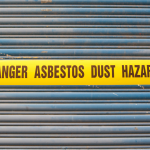The United Nations Environment Programme and its partner organisations have expressed concern over the impact of the conflict in Ukraine on urban and rural environments. Based on preliminary monitoring, the UN has noted that there is likely to be a significant environmental impact and a toxic legacy for generations to come.
The range and severity of the consequences to human health are yet to be established through full verification and assessment programs. However, the UN is already reporting significant air, water and land pollution incidents.
The scale of assessments is likely to take a long time, given the breadth and scale of the reported incidents.
The UNEP is the United Nations’ branch of environment authority and is providing support by way of remote environmental impact monitoring, which it has previously done in war zones in Colombia, DR Congo, Afghanistan, Somalia, South Duan and others.
There has already been an initial scoping visit to Ukraine at the request of Ukrainian authorities, and it is the first step as the organisation seeks to mobilise further support for the assessments.
“The mapping and initial screening of environmental hazards only serves to confirm that war is quite literally toxic,” said UNEP Executive Director Inger Andersen.
“The first priority is for this senseless destruction to end now. The environment is about people: it’s about livelihoods, public health, clean air and water, and basic food systems. It’s about a safe future for Ukrainians and their neighbours, and further damage must not be done.”
“Ukraine will then need huge international support to assess, mitigate and remediate the damage across the country, and alleviate risks to the wider region,” she added.
The damage across the country, according to the UNEP and its partner data, includes incidents at nuclear power plants, damage to energy infrastructure that has significant environmental impacts, including oil tankers, refineries and gas facilities and pipelines.
In addition to that damage, water infrastructure has been damaged, leading to likely contamination of ground and surface water. Raising concerns further is the damage to the storage of hazardous substance facilities, alongside the significant damage to residential infrastructure, which is likely to be contaminated with asbestos in many locations.
Asbestos exposure is a significant concern in Ukraine, which was one of the world’s largest producers of the material between 2009 and 2015, during which it produced 65% of the world’s asbestos.
Ukraine only banned the manufacture and use of asbestos materials in 2017.




